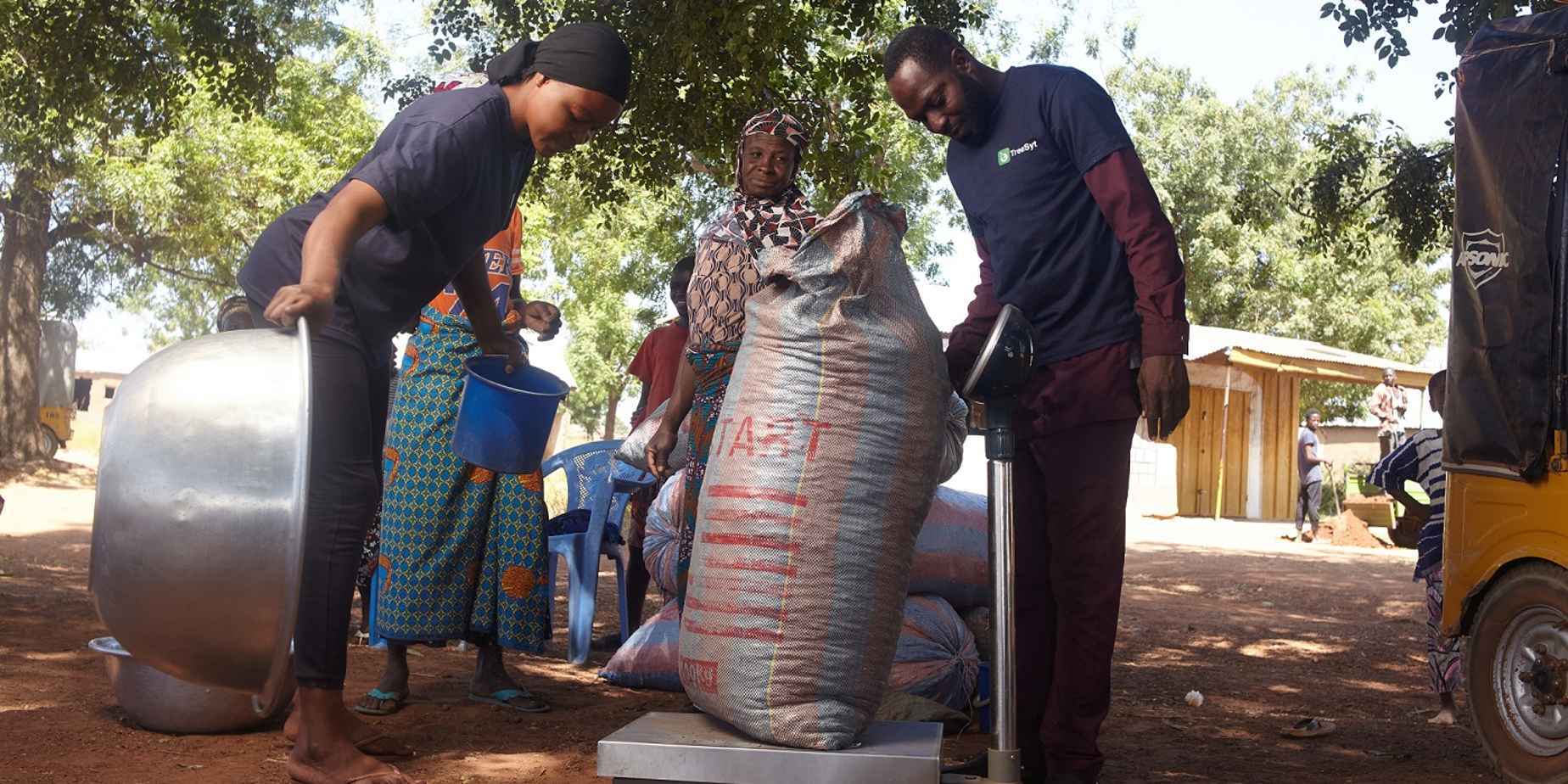Sommalife’s main business is connecting farmers and their agro products to international markets. The loan from Hivos-Triodos Fonds will be used to buy shea kernels from women smallholder farmers in Northern Ghana. The kernels are bought and directly paid for at the farmer’s gate. Sommalife provides resources for women farmer groups in shea-producing communities to produce high-quality farm commodities in large volumes. Bottlenecks such as walking long distances to local markets and dealing with middlemen are reduced.
The company, founded in 2020, has connected more than 20,000 smallholder farmers to international markets, enabling them to earn fair wages and additional income. It has developed its own software, which not only enables efficiency in its sourcing operation but also much-needed traceability.
Focusing on equality and fair power balances in the value chain, Sommalife pays 20+% above the local market average price for the shea kernels it sources, always paying the rural women directly. The company thus achieves one of its main objectives: improving the livelihood of smallholder farmers. 81% of its (mainly female) farmer base has reported an increase in their respective household income thanks to the sale of shea kernels to Sommalife. In addition, 83% reported an improved quality of life (source: 60Decibels study, October 2023).
Another important objective is to increase agro-ecological production. To this end, Sommalife has established 30 community-based nurseries raising over 60,000 shea seedlings and conservation parklands in 52 communities, protecting 607 ha with more than 27,000 shea trees.
Golden resource
Sommalife’s main business is trading agro-commodities, primarily shea kernels in a fair and sustainable way. Shea butter, derived from shea kernels, is a valuable commodity. 90% of the international supply of the shea kernel is used by the food industry (mainly as cocoa butter substitute) and the rest by the cosmetics industry.
According to the Global Shea Alliance, an estimated 16 million women across 21 African countries, from Senegal to South Sudan, depend on the shea tree for their livelihood. According to recent reports, the global market for shea butter is estimated at USD 2.75 billion, with projections indicating a growth to USD 5.58 billion by the year 2033.
In Ghana, shea stands as one of the leading export commodities. Women play a central role in every stage of the shea value chain, from harvesting the nuts in rural communities to processing and selling shea butter in local and international markets. Participation in the shea business empowers them economically, socially, and entrepreneurially, offering opportunities for income generation, skills development, and increased decision-making power within their families and communities.







